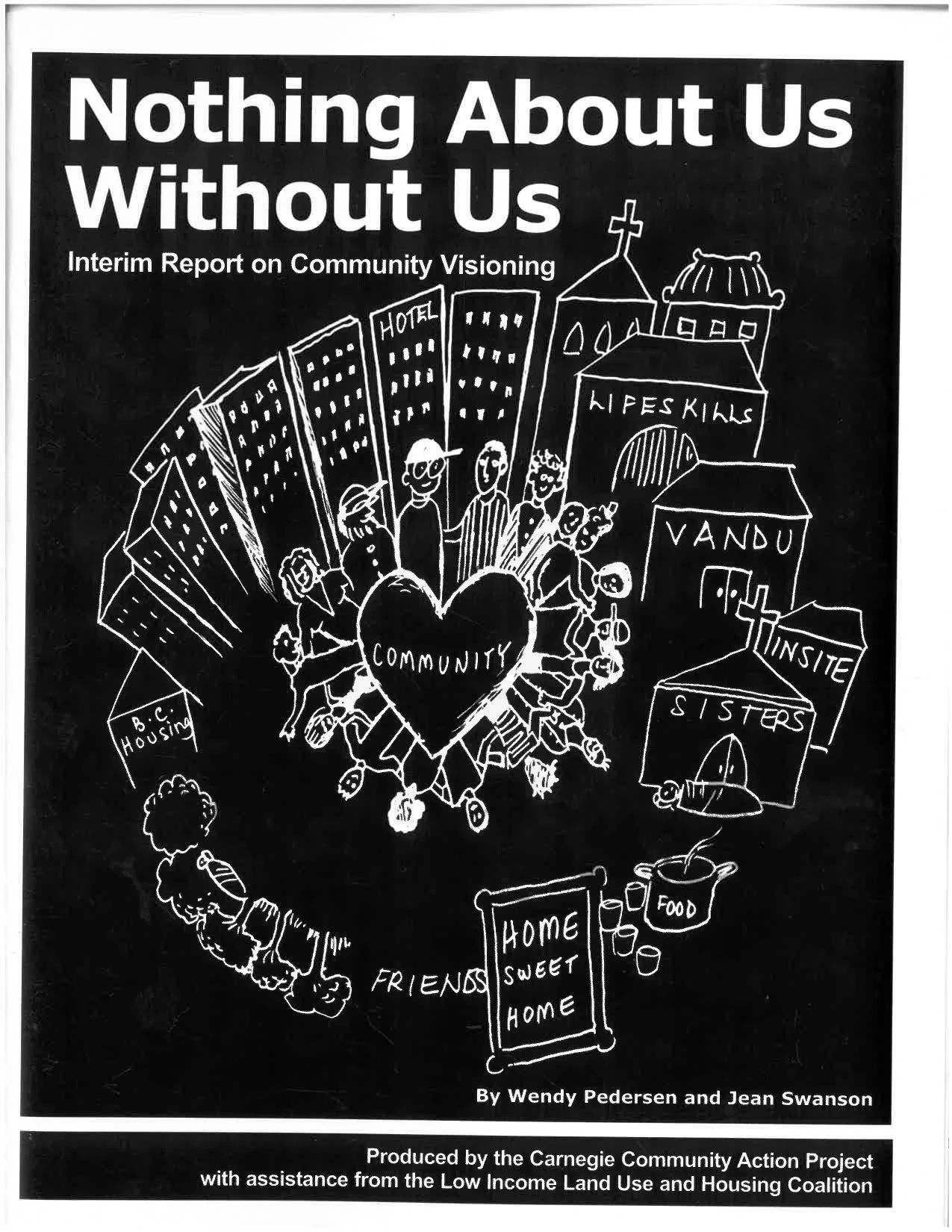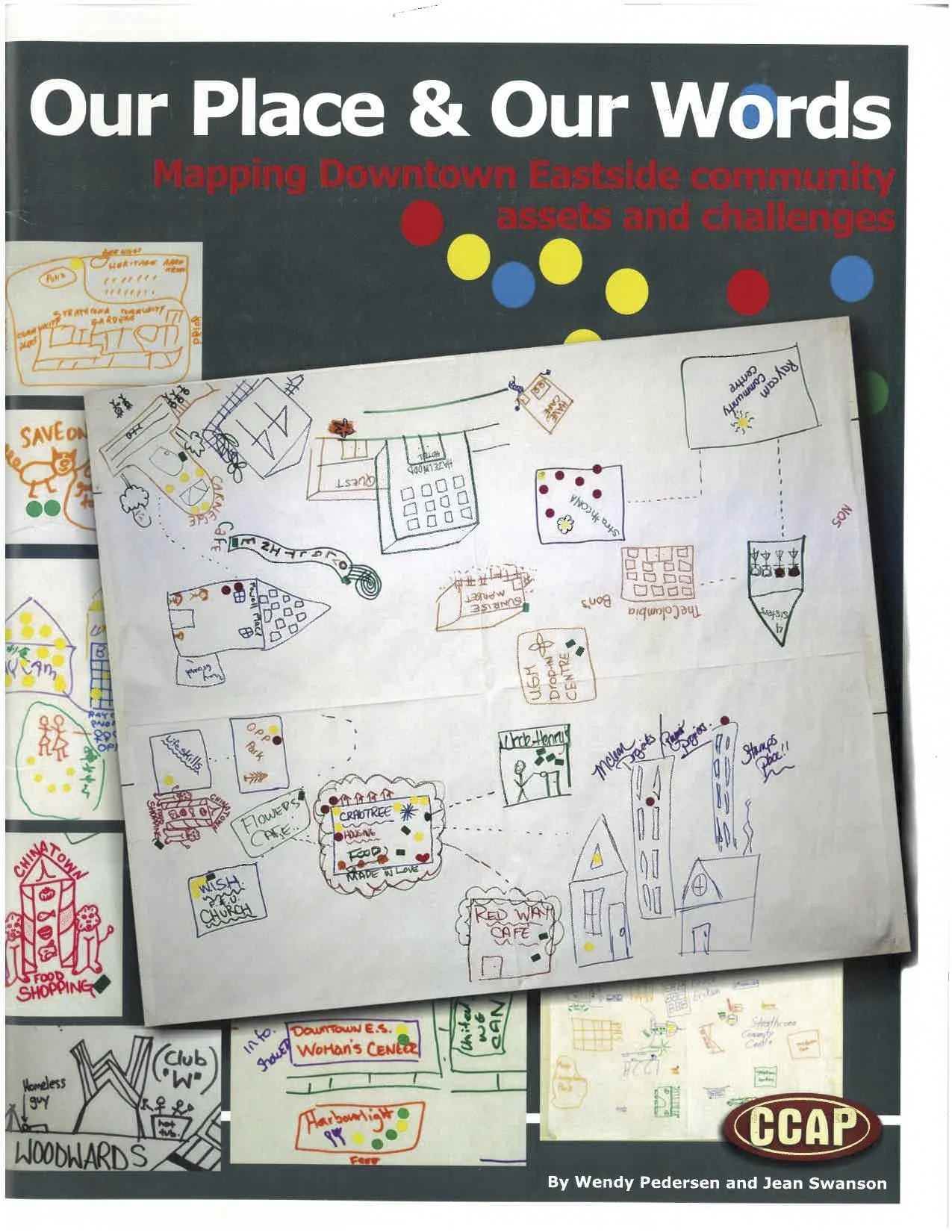
The Carnegie Housing Project amplifies the voices of those who live in the DTES. Learn more about what’s needed to work with us in the struggle for human rights.
Browse our newsletter archive
Catch up on some of the history of our campaign to protect the DTES from gentrification.
Download our guide to the special status of the DTES
Understand the history of the neighbourhood’s zoning and why it works to get poor people into housing.
Learn from local organizers
In 2024, we hosted two panel discussions during that year’s Heart of the City Festival.
Read our 2024 report on how to end houselessness
Scan through a handful of our 42 recommendations or download the report to see them all.
-
Open 500-1,500 more shelter beds, mostly low barrier. In Vancouver, we have about 3,150 people with no fixed address and only about 1,500 shelter beds.
Extend the leases or find modular housing sites in Vancouver. There are 144 units of nice modular homes that are boarded up and the rest of the 700 plus units whose leases will expire in the next few years.
Build a tiny home village for people living in the CRAB park community. This is what the CRAB Community wants. There is no other place for them to go. It would be safer than what they have now.
Fund the Lifeline program proposed by the Building Community Society that would provide support funds and housing for the most vulnerable and isolated living on the street. Many folks on the street have complex problems and need a lot of help. This voluntary program could do outreach to find them and help.
Open one or more hangout spaces where people living on the street can go during the day to sleep, eat, use the washroom, shower, etc. This is a desperate need as many of the shelters close during the day.
Require landlords to get Residential Tenancy Branch approval and have a homeless prevention plan before evictions from social, supportive and SRO housing will be legal. This is a popular recommendation for people who have been evicted with nowhere to go.
Increase medical outreach in the DTES. Lots of folks living on the street need medical help but don’t have transportation or know where to go to get it.
Increase laundry and shower services in the DTES. Many people living on the street asked for this.
Put an information kiosk at Main and Hastings and Pigeon Park that lists services that are available and where they are. People living on the street asked for this as many don’t know which services are available or where they are.
-
Fund Affordable Housing Advocacy. Provide sustained and adequate funding for community groups across BC to work for dignified housing that low income people can afford.
Fund a strategy to eliminate houselessness with adequate, dignified housing for all.
Build at least 1 million Non-Market Housing units over the next 10 years in Canada to provide stable housing for the 2.4 million Canadians currently living below the poverty line. Consider having the government build the housing directly.
Ensure that low-income people can afford new non-market housing by designating at least half of all non-market housing for people living on social assistance and basic pension.
Tax the rich to fund affordable non-market housing. The Canadian Centre for Policy Alternatives has some good recommendations for how to do this.
-
Restore and drastically scale up the Rapid Housing Initiative to provide new homes that people who are homeless or at risk of homelessness can afford. The Rapid Housing Initiative is the federal program that funded cities and provinces to buy hotels during COVID.
Change the criteria for the National Housing Co-investment Fund so that privately owned SROs can benefit from the funding if they keep rents at shelter/pension rate. This change could help preserve SROs until we get enough new housing to replace them.
Create a National Fund for Community Land Trusts to buy and build community-owned housing that low income people can afford. This could ensure that the community has housing they can afford in perpetuity, even if a government that wanted to sell off social housing was in power.
-
Develop specific plans to stop the flows of people into homelessness from hospitals, jails, and kids aging out of care, as outlined in the BC Indigenous Homelessness Strategy and recognized in Belonging In BC.
Provide a $200 million fund to the DTES Community Land Trust to buy, own, and run SROs that are in relatively good shape to operate under their tenant leadership model. Explore funding other land trust groups in the DTES. This recommendation is extremely popular in the DTES.
Bring in province-wide vacancy control to stop the loss of affordability in SROs and other rental housing. Without vacancy control we could lose affordability up to 200 DTES SRO units per year.
Provide more rent supplements, including increasing the SAFER limit to the actual cost of rents. SAFER is a senior rent supplement designed to ensure that seniors renting market housing don’t have to pay more than 30 per cent of their income for rent. But with current rules, that only works if your rent is $803 or less in Vancouver, way lower than average rents. Other rent supplements are small in number, and it's hard to figure out how to access them.
Amend the Transit Oriented Development legislation to require a certain percent of new development be at shelter/pension rate and to ensure that displaced tenants are rehoused in appropriate housing at their current or lower rents. There is a danger that this policy will cause displacement of hundreds DTES SRO residents close to the Main St. skytrain station.
Work with Supportive and Transitional Housing Residents and Operators to better align funding, Operating Agreements, Tenant Agency and Accountability, and RTA Protections.
Massively scale up funding for tenant advocates. Tenants told CHP they have a hard time finding help when their landlord wants to evict them.
-
Commit to adequate funding for SRO strategy from all levels of government ASAP.
Ensure all SROs are redeveloped into shelter-rate non-market housing. There is a danger that if SROs are redeveloped, two-thirds of the units could rent at above the shelter allowance. This would reduce the number of units available to low income people.
Start with renovating or rebuilding empty SROs like the Balmoral, Regent, and Gore and Hastings site before tenanted SROs to make sure that we maintain a net increase in housing to reduce homelessness.
Work with groups like the SRO-Collaborative to support tenant-based initiatives and community building in redeveloped buildings.
Catch up on previous research
The Carnegie Community Action Project published a number of reports that amplified the voices and experiences of DTES residents.





